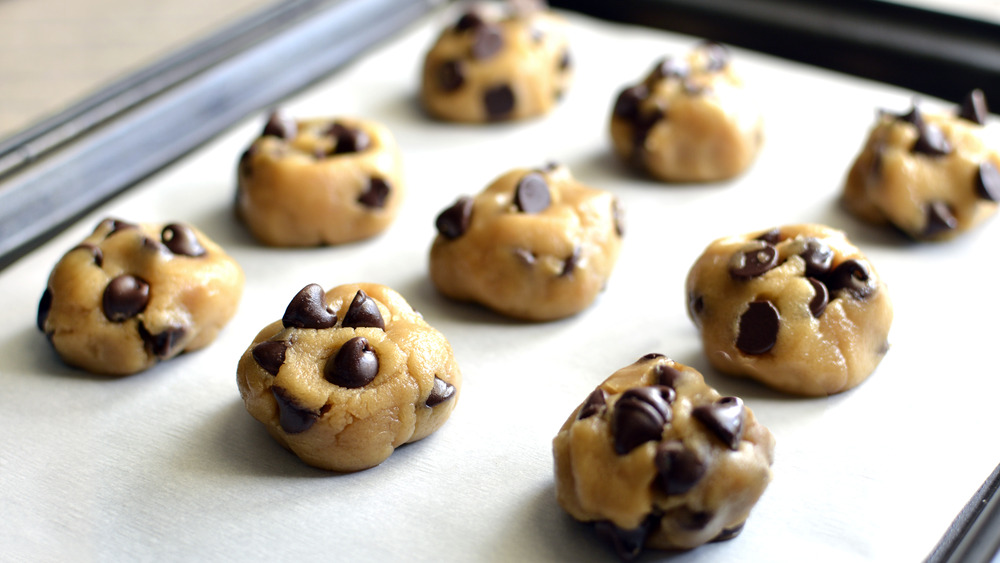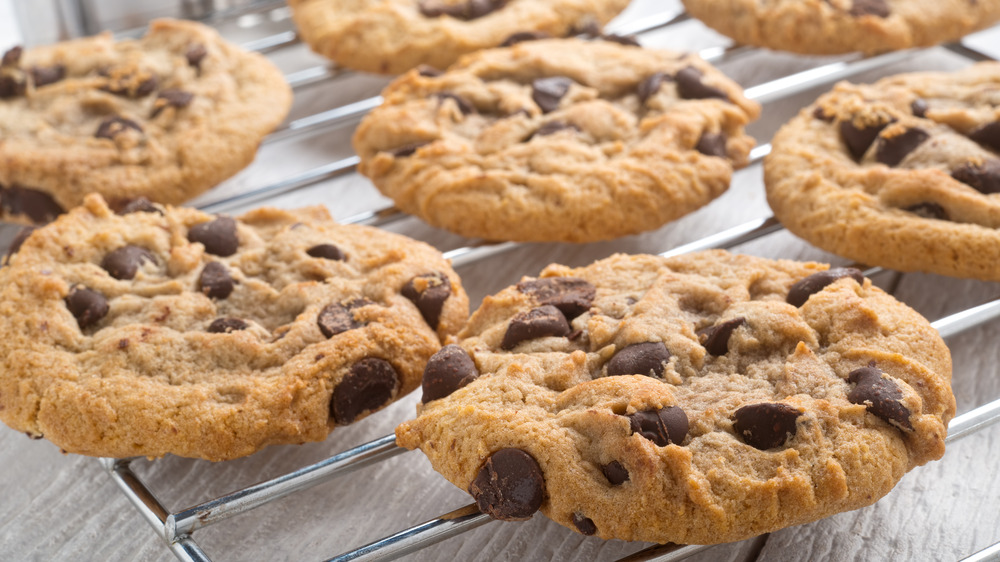The Worst Cookie Baking Mistake You've Been Making
As far as baking goes, making cookies is pretty straightforward. However, when you read through different recipes, every baker seems to have their own special techniques for success. Whether it's a secret ingredient, piece of equipment, or method of preparation, some tricks are made for sharing! Chilling your cookie dough before baking (aka ripening, according to Kitchn) might just seem like an obstacle in the way of you and a warm cookie fresh out of the oven, but it actually has more purpose than training your self-control.
Refrigerated dough behaves differently in a few respects compared with dough that has been sitting on the counter. First of all, Taste of Home explains that the fat content has time to solidify and avoid completely melting in the oven, which would cause the dough to spread and result in flat cookies. The other wet ingredients have time to completely hydrate the flour and sugar, too, which helps minimize spreading and increase flavor.
Taste of Home also points out that during the chilling time, the flour goes through a chemical process and begins to break down its elements, making the sugar in the carbohydrates more noticeable. King Arthur Baking remarks that as the dough dries and the sugar becomes more concentrated, the texture will go from soft and pillowy to chewy and crispy, which definitely sounds like the perfect cookie consistency to us!
How long are we talking?
In an attempt to get some clear-cut answers, BuzzFeed and The New York Times (and plenty of other cookie lovers) have tested it themselves to see the differences in cookie dough at various lengths of time. The New York Times reported that when the cookies were baked after 24 hours of chilling, they had a deeper golden color and far more flavor, including rich notes of caramel and toffee. Its panel of judges noted the flavors were even more pronounced after 36 hours of ripening.
The BuzzFeed testing observed better results after just one hour of chilling, a sentiment which was also echoed by King Arthur Baking who detected very slow changes after the 30-minute mark. Ruth Wakefield, the baker behind the iconic Toll House Chocolate Crunch Cookies, recommended chilling the dough overnight in Toll House Cook Book (via The New York Times). In his recipe, the famous pastry chef Jacques Torres recommends chilling his chocolate chip cookie dough for 24 to 72 hours.
So it seems that anywhere from 30 minutes to 72 hours will improve results. Thankfully, if you want to have your cookies sooner rather than later, a quick 30-minute stint in the refrigerator or 15 minutes in the freezer should provide a significant effect. However, if you plan ahead and want to taste the amplified flavors of a 72-hour chilling period, it might be worth it to see what the fuss is all about!

